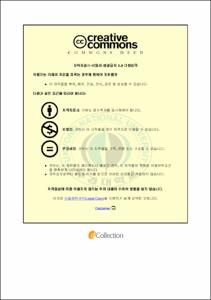한·중 서비스산업의 국제경쟁력 비교분석
- Alternative Title
- A Comparative Study on International Competitiveness of Service Industries between Korea and China
- Abstract
- 글로벌화의 진전에 따라 국가 간의 경제관계는 날로 긴밀해지고 있다. 서비스산업의 무역은 세계 경제활동에서 차지하는 비중이 점점 증가하고 있다. 서비스산업의 무역은 국가 간의 서비스를 제공하는 교환활동으로서 세계무역 중에서 차지하는 비중이 더욱 커지고 있다. 동북아 경제권에서 한국과 중국은 밀접한 경제관계를 유지하고 있어 양국은 서로 중요한 무역 상대국이다. 한·중 양국 간에 최근 진행되고 있는 한·중 FTA 연구와 더불어 양국 간 서비스 부문의 개방에 대한 논의 또한 본격화될 것으로 기대되고 있어, 역내 서비스시장 진출 전략에 대한 체계적 검토가 필요한 시점이다. 서비스산업은 전통적으로 비교역재로 인식되어 연구대상으로서는 관심도가 낮았으나 최근 국제경제 분야에서 관심이 확대되고 있다. 특히 서비스산업은 서비스산업 간 또는 업종별 산업 부문과의 연계성이 크기 때문에 다른 산업의 근간으로서 그 역할이 중요하게 평가되고 있다. 이러한 배경에 따라 본 논문에서는 한·중 서비스산업의 무역현황과 국제경쟁력지수를 통해 양국의 서비스 업종별 경쟁력을 비교하였다. 본 논문의 분석대상은 10대 서비스산업, 즉 운송, 여행, 통신, 보험, 금융, 컴퓨터 및 정보, 건설, 특허권 등 사용료, 개인 문화 오락, 기타 서비스 사업이며, 이들 10대 서비스산업의 국제경쟁력을 비교분석하였다. 본 연구에 사용한 자료는 외교통상부, 지식경제부, 한국은행, 통계청 그리고 중국의 상무부, 국가통계청, UN SERVICE TRADE, WTO, OECD 등에서 제공하는 데이터 자료를 활용하였으며, 분석방법으로는 현시비교우위지수(RCA: Revealed Comparative Advantage), 무역특화지수(TSI: Trade Specialization Index), 산업 내 무역지수(IIT: Intra-Industry Trade), 수출경합도지수(ESI: Export Similarity Index) 등을 활용하여 한·중 서비스산업의 업종별 국제경쟁력을 비교분석하였다. 이를 바탕으로 한·중간 서비스산업 교역을 증대시킬 방안을 모색하고 한·중 서비스산업의 경쟁력 강화를 위한 시사점을 도출하였다.
주요 분석결과를 정리하면 한국은 5가지 서비스산업 즉, 운송, 금융, 건설, 특허권 등 사용료, 개인·문화·오락 부문에서 비교우위를 갖고 있으며, 중국은 다른 5가지 서비스산업 즉, 여행, 통신, 보험, 컴퓨터 및 정보, 기타사업 서비스 부문에서 비교우위를 갖고 있는 것으로 분석되었다. 따라서 한·중 양국은 서비스산업에 대해 서로 보완하는 관계를 갖고 있다고 할 수 있다. 한·중 양국은 상호 보완관계가 강한 서비스산업 부문을 발전시켜야 나가는 일에 주력함으로써 경쟁보다는 상호 윈윈할 수 있는 전략을 구사하는 것이 보다 바람직할 것으로 판단된다.
주제어: 국제경쟁력, 한·중 서비스산업, 현시비교우위지수(RCA), 무역특화지수(TSI), 산업 내 무역지수(IIT), 수출경합도지수(ESI)
Due to the rise of globalization, economic cooperation between states is growing and bringing them closer. The share of trade of service industries in the world trade is gradually increasing. Trade in services is gaining more and more significance in the economic exchange that offers trade in services between countries. Korea and China are developing closer economic relations in the economic integration of North East Asia and both countries are considered as important trade partners to each other. In line with recent developing Korea-China FTA negotiations, a full-fledged negotiation of liberalization of service industries between both countries is expected to proceed. Thus, a systematic study on the strategies for preparing for the opening of service industries between China and Korea is important. Since, traditionally, service industries were recognized as non-tradables in international economics, academic interest in trade in services was low. Recently researching service industries has appealed a greater attention. Its important role is being evaluated anew because services are used as intermediate inputs for the production of other goods and services and inter-industry linkage effects of services are big.
Against this backdrop, this thesis aims to conduct a comparative analysis of the international competitiveness of Sino-Korean service industries. Ten service industries, such as transportation, travel, communications, insurance, finance, computer and information, construction, royalties and license fees, other business service, personal culture and recreational activities are addressed in this thesis.
Data in this research are collected from the Ministry of Foreign Affairs and Trade, the Ministry of Knowledge Economy, the Bank of Korea, National Statistical Office and the Ministry of Commerce of China, National Bureau of Statistics, UN SERVICE TRADE, WTO, and OECD. International competitiveness of ten service industries of China and Korea are measured by indicators such as Revealed Comparative Advantage Index, Trade Specialization Index, Export Similarity Index, and Intra-Industry Trade.
Major findings of this research are as follows. South Korea has a comparative advantage in 5 services industries such as transportation, finance, construction, royalties and license fees, personal culture and recreational activities and China has a comparative advantage in 5 services industries such as travel, communications, insurance, computer and information, and other business services. As a result, China and Korea are complementary to each other in trade of the service industries. Therefore, in order to reduce competition between the two countries and gain a win-win situation, the governments of South Korea and China should strengthen economic cooperation in the service-oriented industries that are complementary.
Key words: International Competitiveness, Korea and China, Service Industries, Revealed Comparative Advantage (RCA), Trade Specialization Index (TSI), Export Similarity Index (ESI), Intra-Industry Trade (IIT)
- Issued Date
- 2014
- Awarded Date
- 2014. 8
- Type
- Dissertation
- Publisher
- 부경대학교
- Alternative Author(s)
- WANG MEI
- Affiliation
- 대학원
- Department
- 대학원 국제지역학과
- Advisor
- 고종환
- Table Of Contents
- 제1장 서론 1
제1절 연구의 배경 및 목적 1
제2절 연구의 범위, 방법 및 구성 3
1. 연구범위 및 방법 3
2. 논문의 구성 4
제3절 선행연구 5
제2장 서비스산업의 개관 8
제1절 서비스산업의 개념 8
1. 서비스산업의 정의 8
2. 서비스산업의 특징 10
제2절 서비스산업의 산업구조분류 12
1. 서비스산업의 산업구조 12
2. 서비스산업의 핵심 분류 16
제3장 한·중의 서비스산업의 현황 21
제1절 한국 서비스산업의 현황 21
1. 한국 서비스산업의 규모 21
2. 한국서비스산업의 수출입현황 23
제2절 중국 서비스산업의 현황 26
1. 중국 서비스산업의 규모 26
2. 중국 서비스산업의 수출입현황 27
제4장 국제경쟁력 측정방법 33
제1절 국제경쟁력의 이론 33
제2절 경쟁비교우위의 측정방법 34
1. 경쟁력의 개념 34
2. 측정방법 36
제5장 한·중 서비스산업의 비교분석 44
제1절 비교결과분석 44
제2절 서비스산업의 국제경쟁력 평가 88
제6장 결론 93
제1절 연구결과 요약 93
제2절 시사점 94
참고문헌 96
부록 99
- Degree
- Master
- Files in This Item:
-
-
Download
 한·중 서비스산업의 국제경쟁력 비교분석.pdf
기타 데이터 / 2.4 MB / Adobe PDF
한·중 서비스산업의 국제경쟁력 비교분석.pdf
기타 데이터 / 2.4 MB / Adobe PDF
-
Items in Repository are protected by copyright, with all rights reserved, unless otherwise indicated.